Nuestros estudiantes
Our Master's students are from around the world with varied backgrounds and experience.
Below, some of our current students, their interests, their pictures, and something more.
Here more about some of our past students, and what they are doing now.
2017-2018
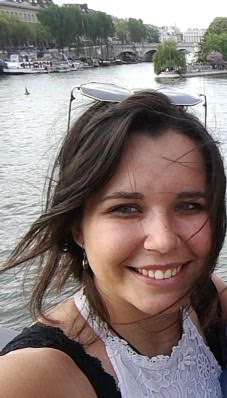 Laura Lille
Laura Lille
Who am I?: I am a frenchie from New Caledonia. I was in an engineer school (ENSC of Bordeaux) where I was studying human/machine interaction and user experience.
Why am I here?: I wanted to dig into cognitive science and to do an internship in a research institute. I found this research master which proposes an interdisciplinary program (with classes ranging from language to social cognition to computational neurosciences for example). Students with completely different backgrounds are welcome, which I find very rewarding. Then, you add very good researchers as teachers and the city of Barcelona and my choice was made.
What am I doing?: I am doing my master thesis in the Rubén Moreno Bote's Theoretical and Cognitive Neuroscience group. I am studying decision-making with computational models. The focus of the project is : how a person's preferences evolve across time and what is the best model to represent these evolutions?
My thesis: A dynamic cognitive approach to human decision-making with multiple alternatives under uncertainty.
Ege Ekin Ozer
Who am I?: I am a Psychology graduate from Koç University, İstanbul. There I had the chance to work in various labs investigating autobiographical memory, language development, gesturing in elderly people and neuropsychological cases, and working memory.
Why am I here?: I came here to UPF to work in a project that involves language discrimination abilities in infants in Speech Acquisition and Perception group. For someone obsessed with/jealous of bilinguals, coming to Barcelona proved very interesting and enriching, so I decided to do my masters here.
What am I doing?: I did my Master's thesis with Nuria Sebastian Galles.
My thesis: Neural entrainment to languages of different rhythm. The goal is to understand how adult native speakers of Spanish and/or Catalan perceive the rhythmic properties of other languages.
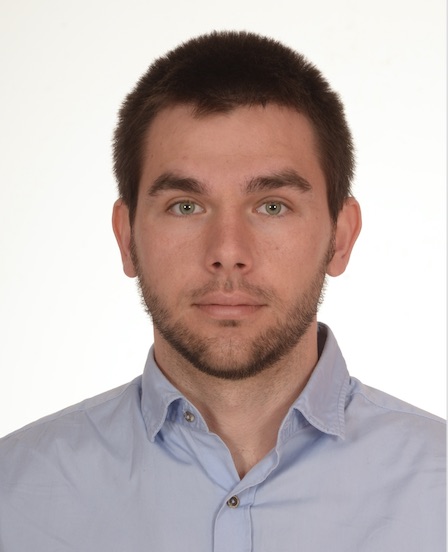 Joan Rue
Joan Rue
Who am I?: My name is Joan Rué, I am from Sitges, a little village near Barcelona , and before this master I studied Psychology and Biomedical Engineering.
Why am I here?: I chose to study this master because I wanted to do my thesis with Gustavo Deco and learn more about whole brain modeling. Also, because there were appealing funding opportunities.
What am I doing?: Thanks to this master, I had the opportunity to learn how to use manifold learning techniques to uncover the intrinsic temporal structure of resting and sleeping fMRI data with Gustavo Deco, but also, it gave me the chance to work as research assistant in Luca Bonatti’s group and do an internship at the neuroscience company Neuroelectrics.
My thesis: Time Manifolds uncover intrinsic structure of temporal fMRI data.
 Gizem Senel
Gizem Senel
Who am I?: Hello, I am Gizem from Istanbul, Turkey. I studied Psychology at Maltepe University. I was working as an intern psychologist before moving to Barcelona.
Why am I here?: I have decided to apply for Msc. Brain and Cognition because I was mainly interested in understanding the broader approach of Cognitive Neuroscience from an interdisciplinary perspective. I wanted to continue my studies in the field of neuroscience research, and UPF gave me an amazing opportunity not only to learn from the best minds in the field but also to do research alongside them.
What am I doing?: I am a member of Ruben Moreno's Theoretical and Cognitive Neuroscience Group. The aim of my thesis is to understand the neural correlates as well as the behavioural predictors of decision-making. I will also be presenting a poster on "Artificial Networks and Integrated Information" in the Human Brain Project's upcoming conference on consciousness.
My thesis: Looking at nothing phenomenon as a predictor of imagination-based decision-making.
 Lucas Adam
Lucas Adam
Who am I?: My name is Lucas Adam. I'm from Slovakia/Italy. I graduated from the University of Glasgow with a MA with Honours in Psychology. During my studies I took part in two internship. One in the Centre of Cognitive Neuroimaging in Glasgow and the other at La Sapienza University in Rome, in the department of psychology and medicine, where I worked on few research projects. After my undergraduate studies, I moved to London where I worked in a mental health crisis centre as a psychology support staff.
Why am I here?: I came to Barcelona because I found the curriculum of the master interesting, wanted to improve my Matlab skills, and also enjoy the international environment and the city itself.
What am I doing?: My supervisor is Gustavo Deco. I am working on a project that looks at the effects of stroke on brain networks. Particularly in brain's connectivity and it's capacity to differentiate between various stimuli. I'm comparing a resting state fMRI data of a clinical sample with data of healthy controls, and also looking at those effects across time.
My thesis: Decreased integration and information capacity in patients with cortical, subcortical, and cortico-subcortical stroke lesions measured by whole brain models of resting state activity.
 Alba Fernandez
Alba Fernandez
Who am I?: My name is Alba, I'm from Madrid, Spain. I achieved my university degree in Biology by The Complutense University of Madrid. I performed my bachelor's final project about memory in Drosophila at the Cajal Institute of Neuroscience.
Why am I here?: To be honest there is not a unique reason to be here. Since the first moment that I found this master I was really interested on it. Not only for the good teachers or the prestigious university but also for its approach to the scientific investigation and its international character. Beyond this master, I also was really interested in living away from home to be more independent. In my opinion, there is not better place to do it than Barcelona, it is a big international city plenty of fun activities, good weather, and sympathetic young people from all over the world.
What am I doing?: Currently I am doing my master thesis in the Multisensory Research group (MRG), under the supervision of Salvador Sotto Faraco, one of the teachers of the Master in Brain and Cognition. My project uses EEG to test if memory retrieval in humans is affected by the angle phase of brain oscillations at which the to-be-remembered stimulus arrives.
My thesis: The EEG phase at encoding as a predictor of subsequent memory retrieval
Stefanie Sturm
Who am I?: I’m from a (very nice) little town called Freiburg (in Germany) where I did a B.A. in linguistics. I then came to Barcelona to do a master’s degree in cognitive science at the UB, and now I am here, at the UPF, doing my second master’s. I have also worked as a language teacher, and as a linguist for an IT company that does natural language processing software solutions.
Why am I here?: I have always been interested in understanding what goes on in people’s heads, and there are a million different ways to try to do that, and in the course of my studies I came to the conclusion that we should all try to have a solid basis of knowledge on all the different aspects of cognition, from the genetic to the neuronal to the behavioural to the philosophical level. So for me as someone with a rather theoretical background, the master’s at the UPF was a great way to learn some more about the actual brain and the stuff floating around in there, and to get some practical experience with working in a lab.
What am I doing?: I am working on an experiment that is part of a larger series of experiments designed and carried out by the research group of Juan Manuel Toro. We are looking at the tendencies and limitations in the automatic processing of patterns in auditory stimuli, something that is interesting for people trying to understand how humans acquire language.
My thesis: ERP components of inattentional auditory rule learning with ABA rules across syllable structure changes in language-like non-words
2016-2017
 Paul Riesthuis
Paul Riesthuis
Who am I?: I am from Almere, The Netherlands, and I did my major in Psychology and my minor in Philosophy at Grand View University. During my undergraduate study my main focus of research was false memory.
Why am I here?: The reason for my enrollment in this Master was due to my interest of continuing my collegiate career with a main focus on research. This Master allows me to learn from the best researchers in the field and also study side by side with highly intelligent students with very different backgrounds. This in combination with living in Barcelona made it a fairly easy decision to come to Pompeu Fabra University.
What am I doing?: I am member of Juan Manuel Toro’s Language and Comparative Cognition Group. I will be focusing on two lines of research. The first one will be on the Mental Time Travel Hypothesis in animals. The second one will be continuing my undergraduate research on False Memory with making a clear comparison between monolinguals and bilinguals.
My thesis: Differences between monolinguals and bilinguals in false memory? A look into the DRM with contextual details.
 Cinta Bertomeu
Cinta Bertomeu
Who am I?: I am from Tortosa (Tarragona) and I moved to Barcelona to study a BA in Applied Languages at Pompeu Fabra University.
Why am I here?: I decided to enroll in this Master because last year I started to work as a research assistant in the Infant Research Laboratory of UPF and I became very interested in the research done with infants and language.
What am I doing?: I am doing my project in the Speech Acquisition and Perception Group. It is about language discrimination in young infants. More specifically, we want to see if the vowel distribution helps infants to discriminate between languages.
Who am I?: I'm Maya, a Canadian who has previously studied Psychology at Western University in Ontario.
Why am I here?: I am passionate about many things: art, design, architecture, music... and last but not least, neuroscience. I get excited about studying neuroscience because of the sheer number of things in our lives that are inextricably linked to the brain. The field of Brain and Cognition is thus exciting and dynamic; this allows for the study of some of my aforementioned passions in conjunction with the brain. I'm here at UPF because I want to learn as much as I can!
What am I doing?: I am working with Dr. Juan Manuel Toro on Music & the Brain. Through studying "embellishments" in music, I am hoping to understand the neural mechanisms behind the aesthetic experience (ie. pleasure) we get when listening to music. Studying this topic from an evolutionary perspective as well, I am excited to address a tough question that has been posed since antiquity... that being, "What is the purpose of Art and pleasure in our lives?" Aside from neuroaesthetics, my research interests include resting state networks in the brain, the formation of insight (creativity), and the philosophy of critical thinking.
My thesis: Audio-visual integration in musicians in the context of a musical beat.
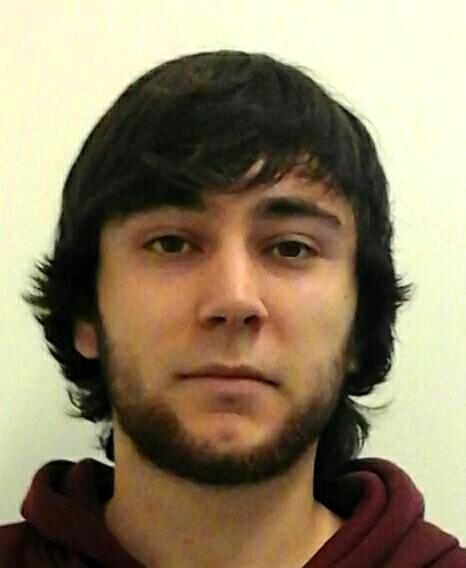 Nicolas Rozado
Nicolas RozadoWho am I?: I was born in Argentina but have lived most of my life in Spain. I studied psychology in Universidad Complutense de Madrid (Cognitive Science specialization).
Why am I here?: Doing an internship abroad I met people that knew some of the teachers and research groups here, they told me nice things about them, so I thought it would be a good place to meet new people, ideas, methods, etc. Also the name Brain and Cognition hooked me, as I was trying to avoid those brain and more brain programmes. Important to mention the multidisciplinarity between teachers (and also between students), it is a great thing.
What am I doing?: I would like to learn about brain modelling (complex dynamics, chaos), that's why I'm doing my project with Gustavo Deco, at the moment focused on measures of intrinsic ignition (brain states, hierarchy...).
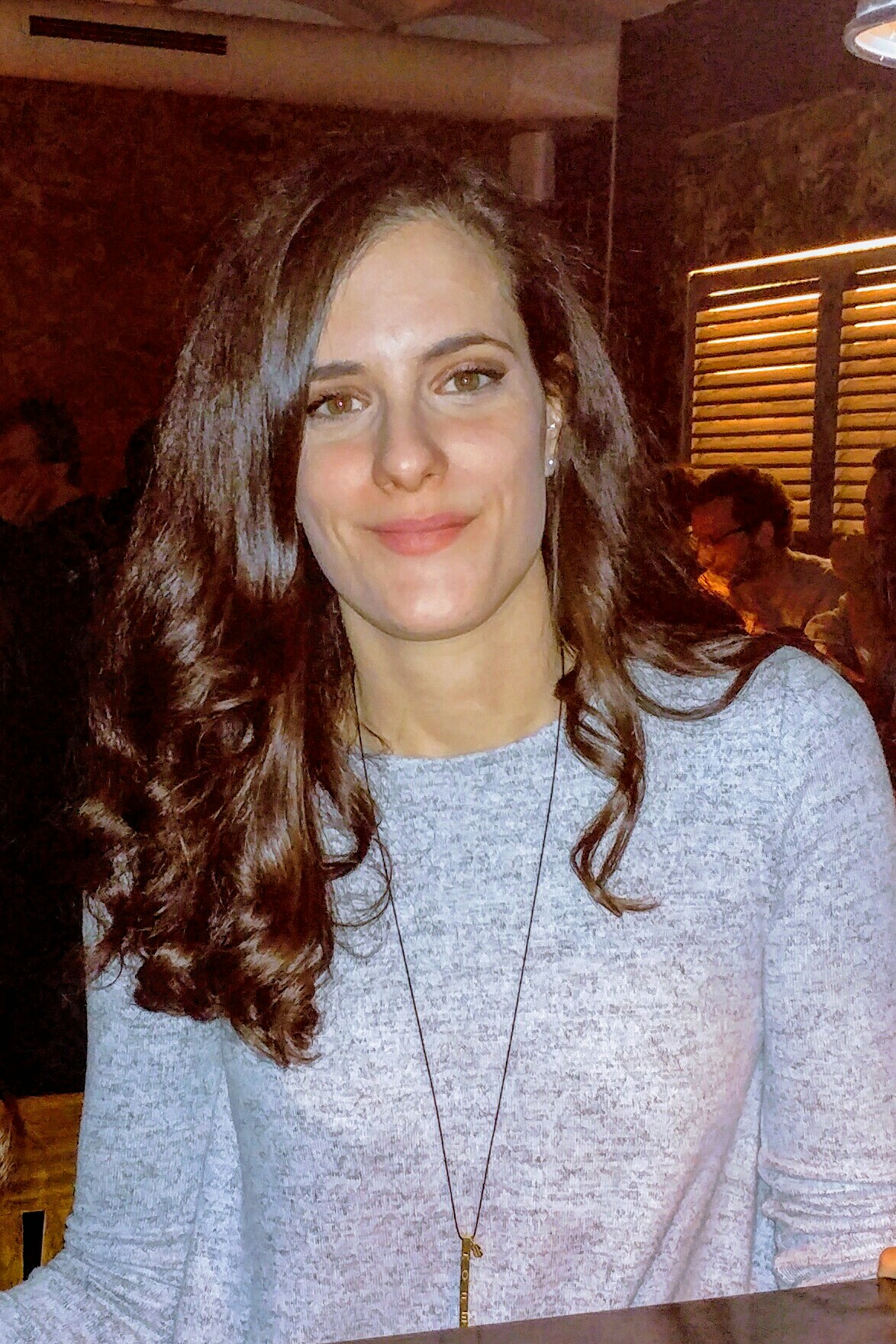 Konstantina Zacharaki
Konstantina ZacharakiWho am I?: I come from Athens, Greece. I have a B.A. in English linguistics with a minor in Greek from the University of Athens.
Why am I here?: I chose this Master because of its multidisciplinary character. Also, another important factor was to be able to work with leading researchers in the domain of bilingualism. Of course, Barcelona is a beautiful and mediterranean city which is a big plus.
What am I doing?: I am currently working on my Master thesis that is related to infants' (either monolingual or bilingual) perception on audiovisual speech cues under the supervision of Dr. Nuria Sebastian Galles.
My thesis: The onset of bilingualism on visual processing of dynamic faces.
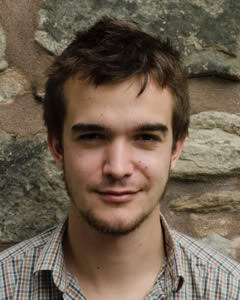 Adam John Harvey
Adam John HarveyWho am I?: I am from Fontainebleau, France. I have a BSc in Neuroscience from Edinburgh University, Scotland, and am taking a leave of absence from my medical degree there to complete the MBC.
Why am I here?: I chose this course as the CBC is well known internationally for its work on bilingualism, which is one of my main interests in neuroscience. The ease of access to the materials you need – if you are motivated – inspires self-directed learning, and the fact that it is all located in the centre of such a vibrant city is a huge plus.
What am I doing?: I am conducting a study as part of the Speech Production and Bilingualism group, in collaboration with the BrainLab at the University of Barcelona. The project is based on how the brain builds expectation. More specifically, we are recording EEG signals when bilingual subjects are expecting to hear one of their two languages, but instead hear nothing. This work will hopefully help us understand some of the neural processes involved in ‘loading’ a language when listening to speech.
My thesis: Neural evidence of language prediction in bilinguals.
2015-2016
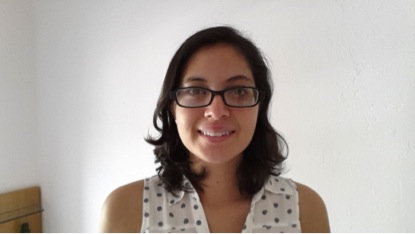 Candice Frances.
Candice Frances.
Who am I?: I am from Argentina. I have an undergraduate degree in Psychology that I obtained at New College of Florida (USA). After graduating, I took a year off and worked as a lab tech.
Why am I here?: There are several reasons why I moved here. For one, I was very interested in the research that is done here on the cognitive aspects of bilingualism. I also wanted to live in a new place and found Barcelona to be the perfect place for a fresh start. Finally, I liked that the program brings together people from very different countries and backgrounds, which provides fertile ground for learning both inside and outside of the classroom.
What am I doing?: I am focusing on how accents affect the way we process information. Accents provide a lot of information about a person: country or region of origin, possible social status, evokes stereotypes we have of different groups, and so on. This is the case not only with non-native accents (e.g. someone from Germany speaking Spanish) but also with native accents that are foreign (an Argentinean speaking Spanish in Spain). My research focuses on the latter: how do we process foreign-native accented speech? Do we remember it the same? Do we believe it the same? Does our brain respond the same way to a foreign accent as when we hear our own accent?
My thesis: The effects of regional accents on memory and credibility.
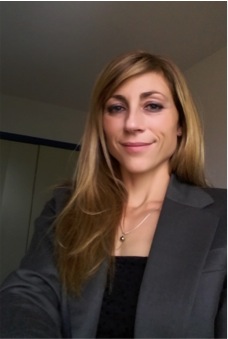 Marion Mortamais.
Marion Mortamais.
Who am I?: I am an epidemiologist with a PhD degree. I am from Montpellier, south of France.
Why am I here?: To learn from the best researchers, and to bridge the gap between what I have learned from epidemiology and what I am currently doing in neurosciences.
What am I doing?: The main aim of my project is to assess the impact of air pollution on the structures and the functioning of the children’s brain.
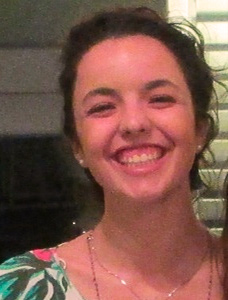 Leonor Castro.
Leonor Castro.
Who am I?: I am from Portugal. I graduated from an Interdisciplinary Consciousness program, a double major in biology and philosophy, at Tel Aviv University. I am also a professional dancer (ballet and contemporary) and was dancing in a professional dance company in Israel for two years.
Why am I here?: I joined the Brain and Cognition master because it combines cognitive science and neuroscience, the interdisciplinary field that I’m most interested in. I wanted to have the opportunity to develop my own experimental project, to have the possibility of using different machinery, and this program gives us the unique opportunity to do all that and to learn from and work side-by-side with great researchers.
What am I doing?: I am doing my project at the Multisensory research lab, and it is part of a study that analyses three different effects: the Simon effect, the Gratton effect, and the cross-hand effect. My aim is to gather new neural information, using EEG and ERPs, on these effects within the Visual and Tactile modalities.
My thesis: The neural underpinnings of the Simon effect in a modality switch scenario.
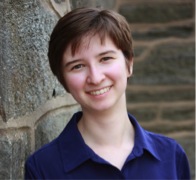 Katherine Marcoux.
Katherine Marcoux.
Who am I?: I am from the United States and studied Linguistics and Languages (Japanese and Spanish) as an undergraduate at Bryn Mawr College. After graduating, I taught English in Andorra for an academic year, during which I enjoyed teaching and living in a multilingual environment.
Why am I here?: I decided to enroll in the Master’s in Brain and Cognition program because of the research currently being conducted by faculty, particularly that involving bilinguals. It is important to me to be surrounded by classmates from varying backgrounds, allowing us to benefit and learn from each other’s unique perspectives.
What am I doing?: I am a member of Dr. Albert Costa’s Speech Production and Bilingualism group. I am conducting research on an individual’s evaluation of personality traits based on hearing brief utterances, specifically “Hello”. What is it that we glean from an individual’s voice? Are there agreed upon personality evaluations associated with a particular type of voice? Is there universality in voice evaluations across languages? What vocal information do we use to evaluate these voices?
My thesis: Exploring the universality in personality impressions from brief, novel voices.
 Juana Castro.
Juana Castro.
Who am I?: I am from Colombia and I hold a Bachelor and Masters degree in Economics. Previously I was working on behavioural economics research
Why am I here?: I applied to the UPF Masters on brain and cognition because i wanted to acquire a further knowledge on behaviour and methods to study it from an interdisciplinary approach.
What am I doing?: In my project I will study automatic vs controlled responses in decision making.
My thesis: Intuition versus reflection in a cooperation dilemma: Evidence for value-based choice decisions.
 Elena Martínez Ruiz.
Elena Martínez Ruiz.
Who am I?: I am originally from La Rioja, but I graduated from Biomedicine (Biomedical Sciences) at Universitat Autònoma in Barcelona. So I moved to this city (which I would highly recommend as a place to live in) almost five years ago.
Why am I here?: My reason for enrolling in this Master in Brain & Cognition was to learn more about how human beings behave and why. More specifically, to study what we know so far about how our brain works. I became interested in this research field last year when I was living as an exchange student in Québec (Canada). This spurred me on to pursue these studies further and this program offered the opportunity to collaborate with great researchers.
What am I doing?: Constantly? Learning. Not only from my professors, but also from my classmates, who are fast becoming good friends. What I strongly appreciate is the multidisciplinary and multicultural atmosphere, as well as the small number of students that allows another way to teach/learn (aspects that are not easy to find in other Master’s programs). Regarding my experimental project, I am working with Juan Manuel Toro’s team to discover how humans process music. I am focusing on the relevance of tonalities and the hierarchical structure of music in music processing, and which are the similarities with language processing.
My thesis: The perception of the syntactic structure of music by non-musicians.
 Jared Smiley.
Jared Smiley.
Who am I?: I recently graduated from McGill University with a BSc in Anatomy and Cell Biology. I am from Toronto, Canada, and believe that I am the first Canadian to be enrolled in the program! While I have embraced the culture here in Barcelona, I take this role very seriously when introducing my classmates to the wonders of maple syrup and ice hockey.
Why am I here?: I researched many different graduate programs related to neuroscience and brain studies, and selected the B&C Master's at UPF for a number of reasons. UPF really appealed to me as a University with a heavy focus on research, and a very strong community of international students. While my interests in the brain come mainly from my background in neurobiology, I was very interested in this program because it approaches each topic and cognitive phenomenon from a variety of related disciplines. In addition to gaining valuable research skills and experience, I get to learn alongside students from all over the world, who specialize in fields ranging from psychology and biostudies all the way to linguistics, engineering, and philosophy. Not to mention that Barcelona is one of the greatest cities to live in and gets no snow in the winter!
What am I doing?: My research project is mainly computational, but has its roots in a behavioural neuroscience experiment in primates. I am analyzing a very rich dataset of prefrontal EEG recordings in monkeys performing a working memory task, and hope to gain new insights on working memory functioning by comparing these results to existing mathematical models.
My thesis: Serial behavioral effects in macaques’ working memory are supported by nerual data in a dopamine-independent mechanism.
Oana Iosif.
Who am I?: I am Romanian and I have an undergraduate degree in Economics, followed by an MBA which I completed in Spain. I have lived in the US, Spain, and Italy, and before joining this program I was working in Finance.
Why am I here?: I joined the Brain and Cognition master because for the past few years I have been very interested in the interdisciplinary field of Cognitive Science and I decided to go back to graduate school for a career change. I was looking for a program that would be open to people from different backgrounds, like myself, who possess quantitative skills and a strong interest in this field. I find that the B&C master is well-balanced in providing a wide knowledge base and hands-on research experience, which makes it a good preparation for PhD studies.
What am I doing?: My project is part of a study of a specific aspect of consciousness, namely whether multisensory integration occurs below the level of awareness. It uses binocular rivalry and audiovisual integration to determine whether a sound can bring up faster an unconscious stimulus to awareness. It also differentiates between the effects that are due to bottom-up attention versus multisensory integration by testing a condition of noise interlaid with silence.
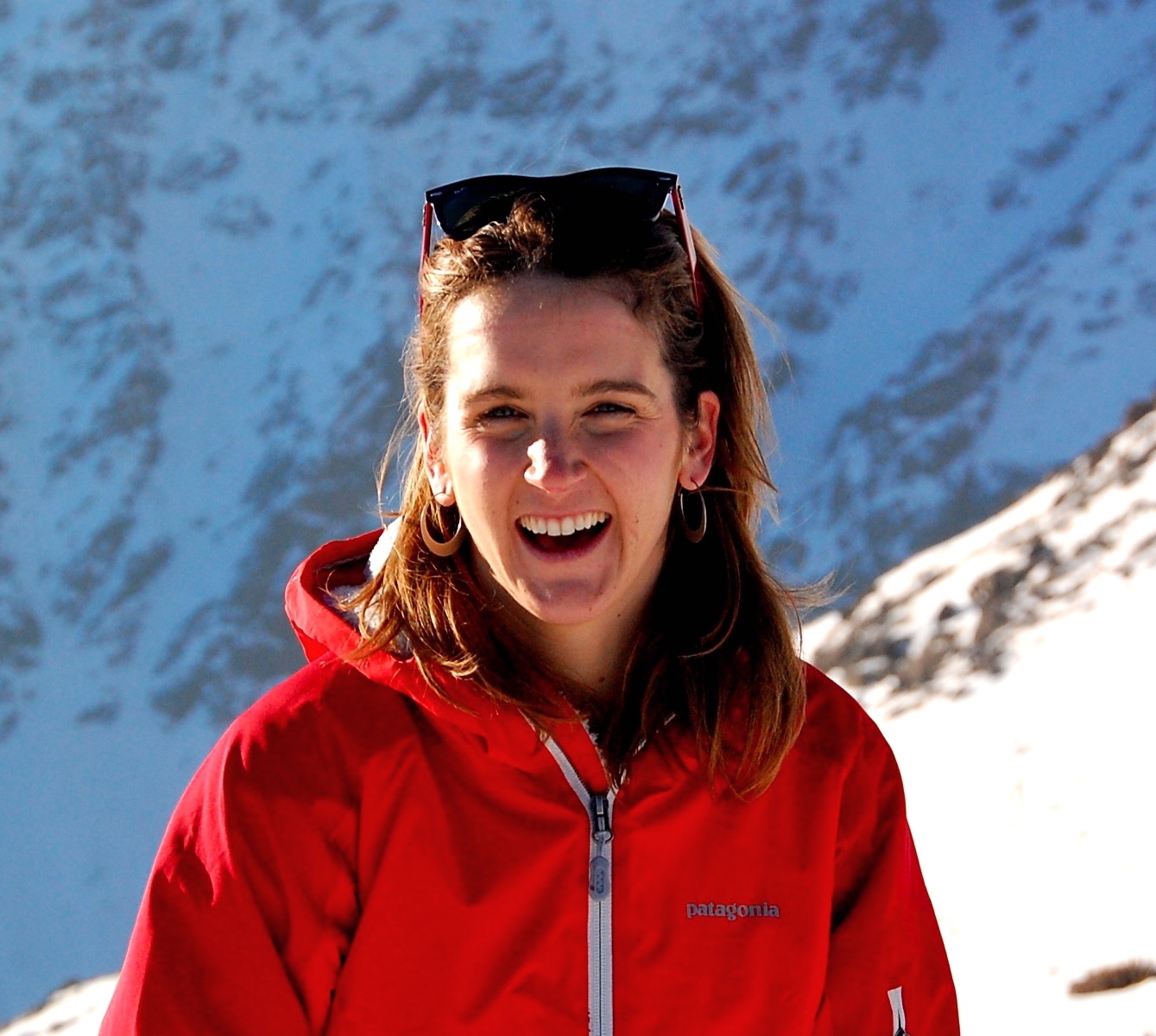 Josefina Cruzat.
Josefina Cruzat.
Who am I?: Speech Therapist with a Master degree in Neuropsychology. From Chile with pride, as the best wine ;)
Why am I here?: To learn from the best researchers, to live in Barcelona, because of the interdisciplinary nature of the work and its international environment.
What am I doing?: The main aim of my project is to gather new knowledge about the neural circuits sustaining language processing through SEEG recordings from the human brain in epileptic patients.
 Alexandre Celma.
Alexandre Celma.
Who am I?: I was born in Santa Perpètua de Mogoda, but I grew up in Castellvell del Camp. I studied a bachelor of science in high school (Reus, 2007) together with a professional music degree (Vila-seca de Solcina, 2010). I decided to look at linguistics and engaged in Catalan Philology at URV (2007-2012, Tarragona). Meanwhile, I worked as a violin and music theory teacher in Masroig. After having experienced an Erasmus year in Lyon (France), I worked as a Mobility assistant at URV. In 2012 I moved to Barcelona to start an interuniversity master in Cognitive Science and Language, which made me discover Biolinguistics. Thanks to a grant from AGAUR I worked two years in UB Linguistic department, which also allowed me to collaborate with Joana Rosselló and GramMaR research group. Currently, I started a recently-created master in Brain and Cognition at UPF, to work on the relation between music and language with Juan Manuel Toro.
Why am I here?: My research framework falls within Biolinguistics and Biomusicology, linking hypotheses and experimental findings from different disciplines to build a better explanation of our cognition compared to animals'. The internationality of Barcelona and the CBC are fundamental for my multidisciplinary approach, as well as the opportunity to collaborate with researchers who are at the forefront of their fields.
What am I doing?: My MA thesis deals with the time structure of music (and even dance), that is, how our brain processes the beat and the meter, and how it relates to biological restrictions, possibly shared with other animals. In fact, my experiment will try to look at these two elements beyond the auditory modality. In the future, my inquiry could also be extended to the effects of grammar on music, and how it leads to the human-specific structure of music based in harmonic relations.
Kinga Bohus
Who am I?: I am Kinga from Hungary. I have a Bachelor degree in Economics from Eotvos Lorand University, Budapest.
Why am I am here?: I chose this Master mainly because of my interest in Cognitive Sciences. I plan to study Neuroeconomics in the future, which combines Decision Theory and Neurosciences.
What am I doing?: At the moment, I am working on a baby logic experiment, where we are trying to find out more about infants' logical inference abilities (disjunctive syllogism).
Marc Lluís Vives Moya.
Who am I?: I’m a psychologist; I studied the degree in the University of Barcelona, focalizing on basic psychology because my field of interest is the basic research of the cognitive processes.
Why am I here?: I was looking for a master about the brain but not specialized on biology and physiology, but more interested in the cognitive processes, so this master was ideal to get a first insight of the work that has been done throughout the last decades.
What am I doing?: Nowadays, I’m working with the Speech Production group, headed by Dr. Albert Costa, trying to shed some light about how changing between a native language and a foreign one might be affecting our cognitive processes and behavior.
 Martina Maier.
Martina Maier.
Who am I?: I am from Switzerland and came to Barcelona two years ago to do my first Master in Cognitive Systems and Interactive Media at Universitat Pompeu Fabra. Since I graduated I have been working in the SPECS Lab of Pompeu Fabra as a research assistant. Before I came to Barcelona I was working as a marketing specialist in various financial institutions and earned a bachelor’s degree in Business Communication.
Why am I am here?: Barcelona seemed to me always a very attractive city to live in. As I was seeking for a change, I started to search for possible university programs here and discovered the interdisciplinary master programs offered at Pompeu Fabra. As I was always fascinated by technology, brain and research I decided to give it a try and enter the academic world.
What am I doing?: My research activity in SPECS involves investigating in novel virtual rehabilitation tools for stroke patients. For my master thesis I chose to work on multisensory integration, where I am trying to find out how sensorimotor adaptation can change the way we integrate our senses.
Noaa Barak.
Who am I?: I hold a B.Sc in Biology and Cognitive sciences (HUJI) and an MBA (BGU). I have hands-on experience in molecular biology research, as well as working experience as an R&D project manager and an innovation consultant in Israel and Spain. I have had the privilege of working in some very different research areas in the past, including Technology Enhanced Learning, e-Inclusion, SME innovation and artificial spider silk proteins. I am a fan of the multidisciplinary.
Currently, I lead a "double life" balancing university studies with a career as an innovation consultant. It's not always easy, but most days are very rewarding.
Why am I here?: I have always been fascinated with research on attention, learning and perception, as well as with Neuropsychology research. I actually stumbled upon the MBC programme by accident but was immediately intrigued by its multidisciplinary approach.
The programme introduced me to new exciting research fields I was not aware of, such as comparative cognition and early human cognition. I have also discovered a great deal of flexibility on behalf of the programme in accommodating our ideas and interests.
What am I doing?: My research at CBC, under the guidance of Prof. Juan Manuel Toro, is focused on the interaction between the mental representations of space and time, or, in other words how our "sense of time" is influenced by changes in the physical and mental space. This research was inspired by findings from hemi-spatial neglect patients.
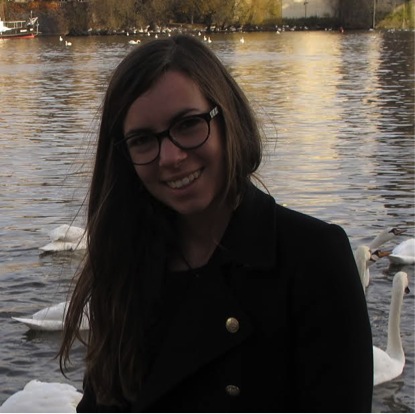 Roser Cañigueral
Roser Cañigueral
Who am I?: I am from Barcelona and I have Biomedical Sciences undergraduate degree (University of Barcelona, 2014).
Why am I am here?: I decided to enrol in the Brain and Cognition research master because I wanted to extend myfuture professional career from the biological level to the neurocognitive level. Actually, what most attracted me to this programme is the interdisciplinary nature of the work that is developed in here, both at the behavioural and neural level.
What am I doing?: I am doing my master project in the Speech Acquisition and Perception group. It focuses on how social factors (high/low hierarchy) can influence learning, and I will use behavioural and neural (EEG) evidence to analyse it.
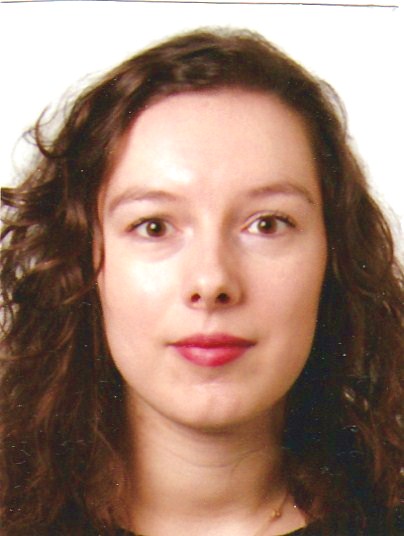 Léna Kervran.
Léna Kervran.
Who am I?: French nationality with an academic background of a BA in Modern Languages and Linguistics, University of Oxford.
Why am I here?: As a linguist, I am planning to specialise in Neuroscience and Linguistics next year (2015-2016) by studying for a second master; I was therefore interested in this Msc in Brain and Cognition because I thought it could give me insights on this field of Neuroscience to which I am a novice.
What am I doing?: I am doing a project on Multisensory Audiovisual Integration in infants. We want to test how automatic is the process of audiovisual integration in infants of 4 months old, in different contexts.
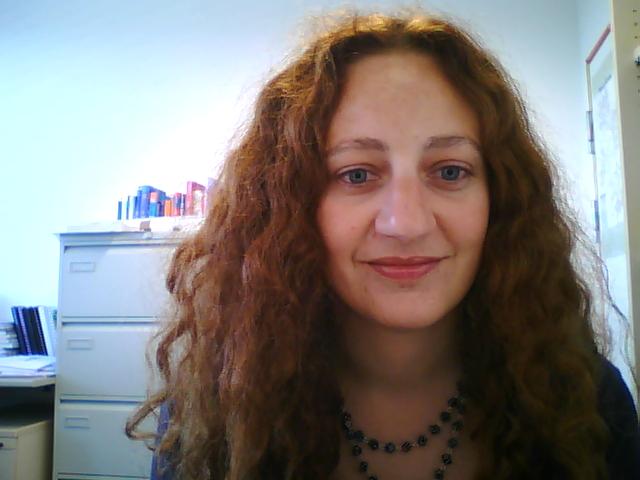 Mireia Nogales Vilardell.
Mireia Nogales Vilardell.
Who am I?: I have studied Biology (Universitat de Barcelona) and Statistics Sciences and Techniques (Universitat Politècnica de Catalunya) and I have got a PhD in Sciences (Universitat Pompeu Fabra).
Why am I here?: I have developed my research mostly in Bioinformatics field (Big Data processing in Molecular Biology) where I have had the possibility to work with neurodevelopmental diseases like Down syndrome, autism among others.
This has increased my interest to know more about brain processing, thus I have enrolled to Brain and Cognition Master.
What am I doing?: I am working in a master project with the aim to integrate different information, behavioral data, fMRI and genetics in order to get greater understanding about how short-term memory works in healthy people.
Marc Gimeno Martinez.
Who am I?: I have a bachelor degree in Pedagogy, in Speech therapy and I'm also a teacher specialized in hearing and language. I followed with a master in Neuroscience and behavioural Biology and currently I'm enrolled in the masters in Brain and cognition at UPF. I studied sign language and nowadays I work as a speech therapist in a public school with deaf children.
Why am I here?: I'm interested in how we communicate and what the effects of oral bilingualism are. I think that researchers need to be linked with the issues that they want to investigate, so my questions are related to my work and my experience. With my co-workers many times we were asking about what are the costs and benefits of bilingualism understood as oral language and sign language for the children who we teach every day. I like the idea that I have the opportunity to contribute my bit to improve the teaching practice of these children. Because of that, I joined this master and I would like to carry on in this field.
What am I doing?: Nowadays I'm involved in studying the effect of categorical perception in Sign Language. Looking at the future, I'm also curious for the effect of gesture (and sign language) in speech processing in healthy and diseased. So I hope I'll have the opportunity to work in this field in the near future.
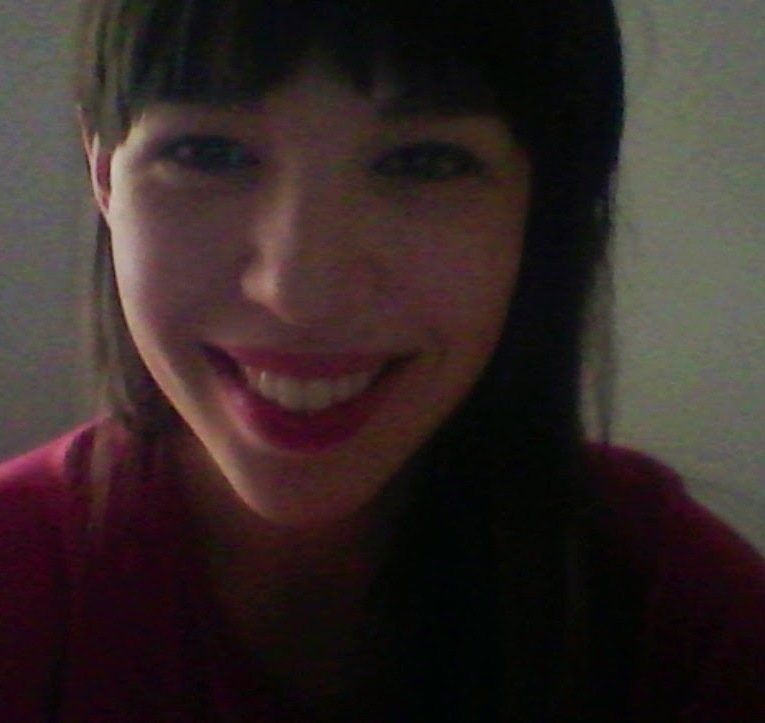 Jasna Cakarun.
Jasna Cakarun.
Who am I?: I come from Slovenia, and I am a Professor of English and Russian Language and Literature. During my time at university I became interested in linguistics and ultimately focussed on it entirely. I finished my 4-year undergraduate course with a BA researching wh-movement in the Russian language, which I tested with a psycholinguistic experiment. Besides studying, I work as an interpreter, translator, editor and language tutor.
Why am I here?: I am trying to re-track my career into the natural sciences, preferably into a sphere dealing with the functions and the biology of the brain. The B&C Master's is a good first step in that direction, as well as a fantastic opportunity to enjoy a year of life in Barcelona.
What am I doing?: The aim of my MSc project is to test adults' rule-learning mechanisms using sine-wave speech in a linguistic and a non-linguistic context. We are looking to identify the characteristics that enable one to discern a rule from sequences of stimuli given in different environments.
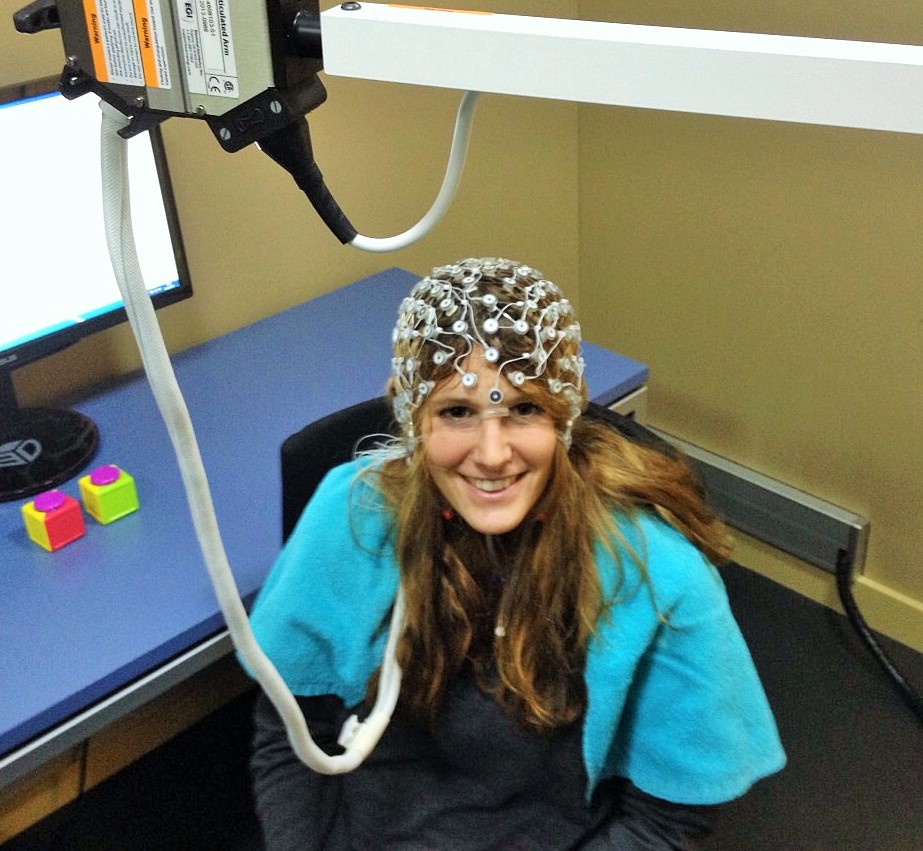 Andrea Riquelme Esteve.
Andrea Riquelme Esteve.
Who am I?: I am from Alicante and I came to Barcelona to start my university studies in relation to Biology, and more concretely, to the Neurosciences. I completed my undergraduate degree of Biomedical Sciences in the University Pompeu Fabra (2010-2014), and I am currently enrolled in the Brain and Cognition master programme (2014-2015).
Why am I here?: I am here to obtain solid basis in the research field of cognitive neuroscience, and try to study the brain from a different point of view, without pipettes or laboratory workbenches. I was interested in the master because it integrates various fundamental domains of cognitive neuroscience.
What am I doing?: I am doing my master project in the Speech Acquisition and Perception group. The project is based in a topic of social cognition, which proposes that accurately mindriding involves the ability to think about what others think or believe, and to use this knowledge to create predictions about their behavior.
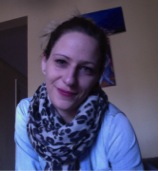 Mara Rolke.
Mara Rolke.
Who am I?: Hi, I’m Mara. I did my undergraduate in Psychology at the University of Aberdeen, Scotland. Originally I’m from Germany.
Why am I here?: Barcelona is a wonderful city and constitutes a pool of a diversity of people. Being able to live and research here is particularly fortunate. I hope to pursue researching in the field of meditation and, more general, consciousness. Ultimately, I wish and hope to work in the area of sleep and dream research, more precisely, with respect to lucid dreaming and its benefits.
What am I doing?: My thesis project entails very basic physiological measurements during meditation practice. I guess, in order to make this highly complex and diverse object of research suitable for empirical scientific investigations there is still a long way to go. Hence, there seems to be a need for controlled studies that ultimately allow for generalisation and comparison of results. Starting at this very basic level of physiological effects, I hope to contribute to a growing body of research in this field.
